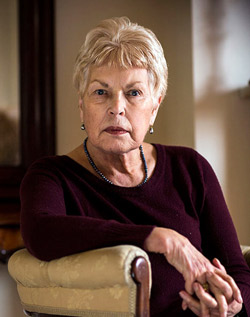
Chief Inspector Wexford was almost christened Waterford, as Ms. Rendell recalled. On vacation in Ireland, she visited both Wexford and Waterford and decided that either would be acceptable for her sleuth’s surname. So, how did she settle on “Wexford”?
“I don’t know why,” she said. “I guess I just like the letter ‘X.’ ”
Ms. Rendell also wrote a score of stand-alone novels, typically featuring protagonists on the edges of society. From her earliest writing days, Ms. Rendell wanted to do more than create puzzles revolving around who killed whom and why. So, as she recalled for Simon & Schuster, she laced her mysteries with such themes as racism in the English countryside, damage to the environment, domestic violence and arranged marriages among immigrants.
She acknowledged worrying early on that her readers might not like her delving into such serious issues. “But they did,” she said. “They wrote to me and told me that they did.”
We really, really did. Thanks for all the words.
Leading image from Laura Barnett's 2013 interview with Ruth Rendell in the Guardian.
